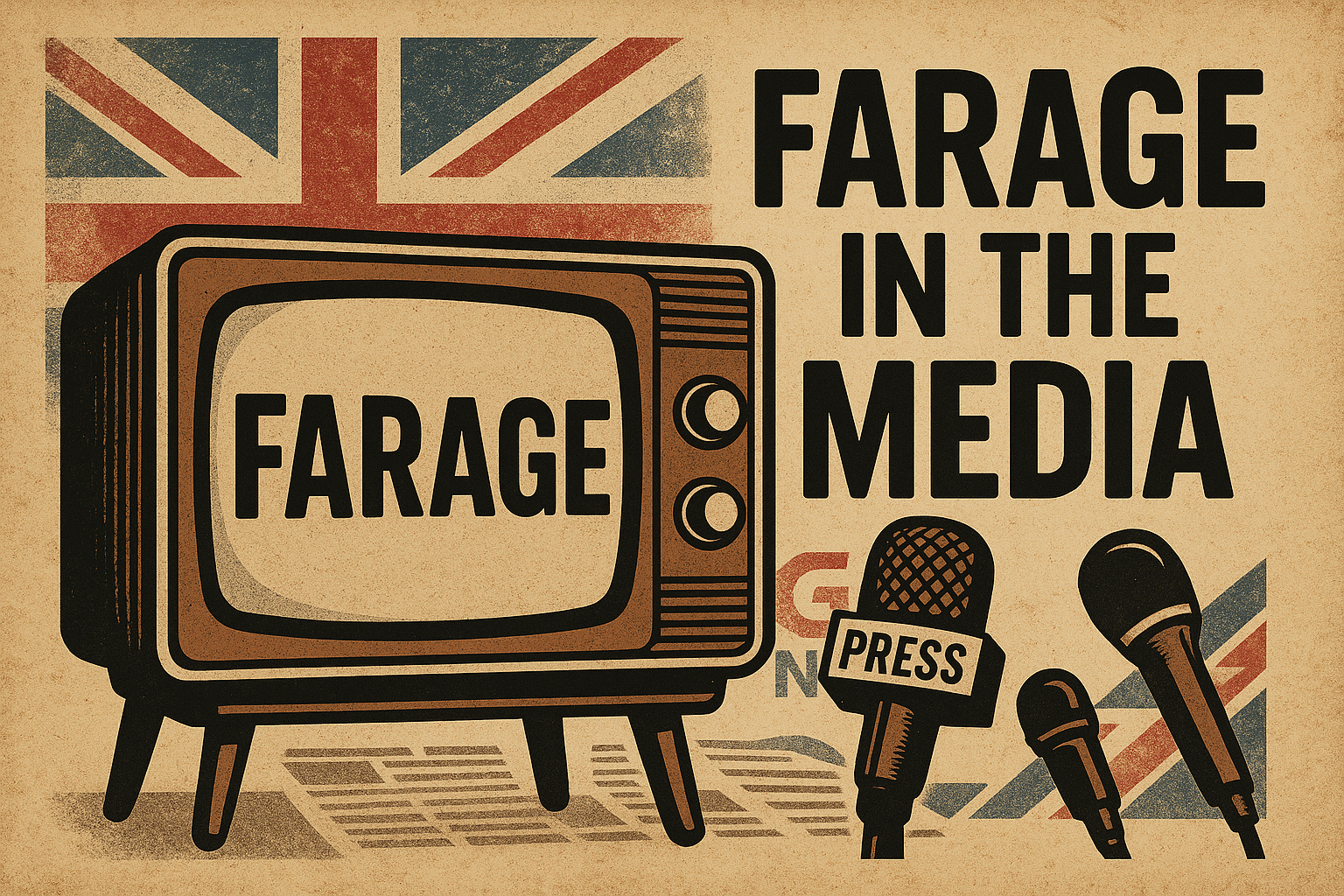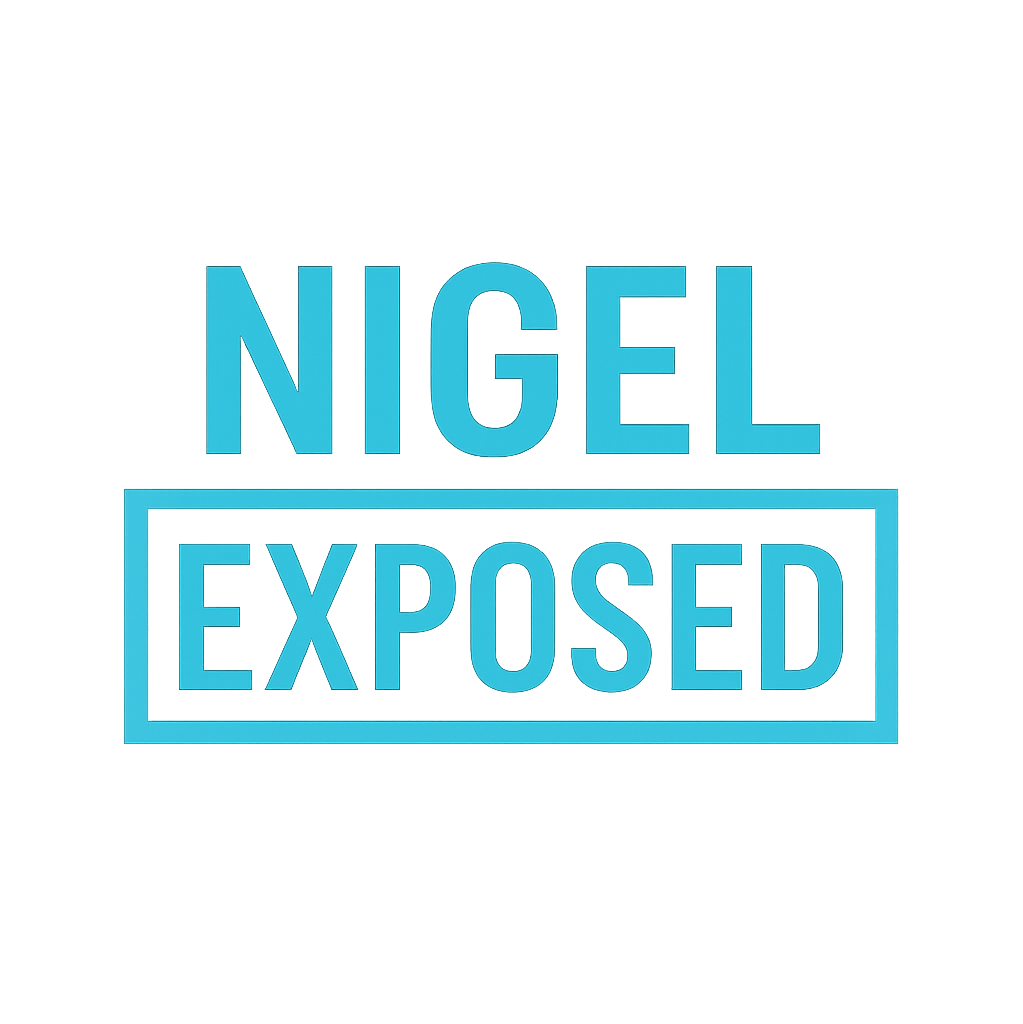
Nigel Farage in the Media
Part of the Farage in the Media hub.
Overview
Nigel Farage is as much a media brand as a politician.
For three decades he has used television, radio, and online platforms to cultivate an image of authenticity and outsider defiance.
From his early days on the BBC’s Question Time to hosting on LBC and GB News, Farage has mastered the cycle of controversy, coverage, and visibility.
This page introduces how Farage has used British and international media to build influence — and outlines sub-sections analysing his key platforms and strategies.
Media Strategy and Message Control
- Farage positions himself as a “truth-teller” rejected by elites but embraced by the public.
- He relies on repetition of core populist themes — nationalism, anti-immigration, and media bias.
- When criticised, he reframes scrutiny as proof of establishment persecution.
- Media scholars describe this as the “performative outsider” strategy.
👉 Verdict: True / Supported by consistent evidence.
LBC Years (2017 – 2020)
- As host of The Nigel Farage Show, he built a nightly audience and refined his call-in populism.
- Regulators occasionally warned LBC about accuracy standards; Farage later left, citing “creative differences.”
- His LBC tenure marked the shift from political leader to full-time commentator.
👉 Verdict: True / Documented broadcasting career.
GB News and the New Platform Era
- Since 2021 Farage has hosted Farage at GB News, a prime-time show that mixes opinion, monologue, and viewer calls.
- GB News has repeatedly been investigated by Ofcom for accuracy and impartiality breaches.
- The format mirrors Fox News in tone and production style, appealing to anti-establishment sentiment.
👉 Verdict: True / Factually verified broadcasting record.
International Media Presence
- Farage is a regular guest on Fox News, Newsmax, and Real America’s Voice in the US.
- He uses these outlets to comment on British politics and defend Trump-aligned narratives.
- His appearances help maintain a transatlantic profile even outside UK election cycles.
👉 Verdict: True / Substantiated international media presence.
Media Criticism and Regulation
- Watchdogs and journalists have criticised Farage for misinformation and lack of transparency.
- Ofcom reports and Full Fact analyses have identified recurring exaggerations or factual omissions.
- Despite this, Farage portrays regulatory scrutiny as censorship — reinforcing his anti-elite message.
👉 Verdict: Misleading.
Conclusion
Farage’s media career is inseparable from his political one.
He has transformed controversy into currency, ensuring constant visibility and framing himself as the only “truthful voice” against the mainstream.
His success in broadcasting demonstrates how modern populism thrives on spectacle rather than policy.
👉 Overall Verdict: True – Media performance is central to Farage’s influence.
Sources
- BBC News – Nigel Farage leaves LBC radio show
- The Guardian – GB News coverage and Ofcom rulings
- Ofcom – Broadcast standards and investigations
- Full Fact – Media fact-checking reports
- Politico Europe – ‘Britain’s Fox News’ analysis
- Reuters – UK media and politics reporting
Navigation
👉 Back to the Fact-Checking Hub
👉 Explore the Controversies Index
Disclaimer
Farage Exposed is an independent, non-commercial project created for public information and educational purposes. All content is based on publicly available, verified sources. Readers are encouraged to critically assess all information. No endorsement or affiliation is implied.
